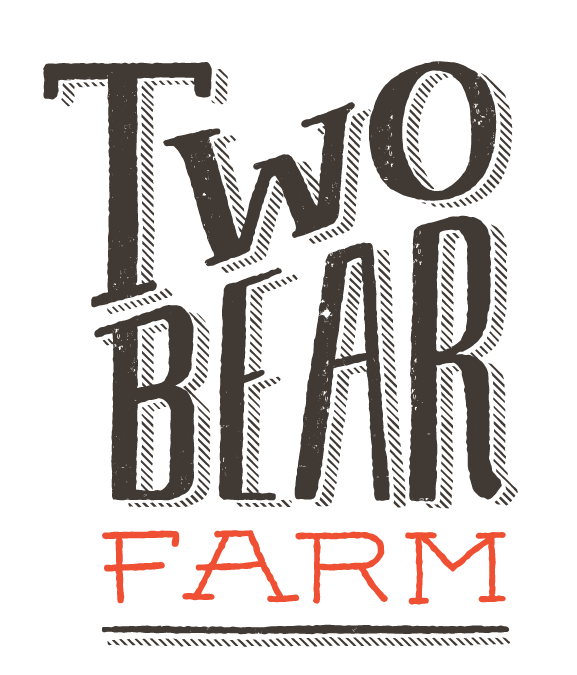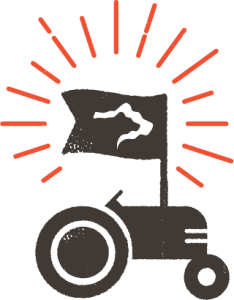Hello Farm Friends!
I’m happy to announce my herniated disk has resolved enough that I can sit in a chair and focus enough to type…and just in time! This week has become one of my favorite weeks of the year….it’s the week of the Old Salt Festival on the Mannix Family Ranch in Helmville, Montana. As a young wildlife biologist, I had the privilege of working in the mountains surrounding the beautiful Blackfoot Valley, from Seeley Lake all the way to Lincoln, and so this area holds a special place in my heart. Last year when I heard there was going to be a festival on a working ranch that was focused on celebrating land stewardship, conservation, good food, and connection to place….I had to go. And, boy, did I have a great time!
So, first off, if you are looking for something to do this weekend, you should check out their website to learn more. At the time of this writing, I heard there are still tickets available, and the forecast looks beautiful. But aside from all the wonderful people, conversations, food, music, and scenery…I wanted to take a moment to talk about what’s at the heart of this festival.
Life as a cattle rancher is not easy. Most ranches are cow/calf operations, where each fall the calves of the year are sold into the commodity beef system…which means shipping them off to a feedlot somewhere in the midwest. The beef processing industry is basically a monopoly of 4 huge agribusinesses, so there is very little choice as to where to sell, and no say in the price you receive….that’s all set by the market, And as with most industries, the rancher receives very little of each food dollar, but carries much of the risk. The more a producer gets squeeze on price, the less room there is for that rancher to take care of the land and the animals. It’s a race to the bottom, and it basically sums up the industrial food system we live with today.
Case in point, did you know that there are more cows in Montana than people, and yet less than 1% of the beef we eat here is from Montana? It’s more likely you’re eating beef from Brazil than from Montana. The industrialization of the beef industry…including the consolidation and concentration of processing, puts regional and local systems out of business, and hollows out communities.
So, it takes a lot of courage and effort to seek a different path. But if you want to keep a 5th generation ranch intact and not sell out to development or a wealthy buyer, one needs to take risks. What the Mannix family decided is that they wanted to sell direct to customers. Which meant they need to convince customers about the quality of their product, they needed to build regional processing, as well as a system for sales and distribution. To basically vertically integrate the system, but at a local, more human scale. At this point, four ranches that manage over 200,000 acres have partnered to create the Old Salt Co-op. This Co-Op in turn, is building a processing plant in Helena, and has opened two restaurants in Helena as well…The Old Salt Outpost and The Union, to show people the quality of the food they produce (so, if your ever in Helena, check them out!). And the festival serves as a great event to help raise awareness, as well as bringing together an amazing group of makers, producers, conservationists, and artists. Ed Robeson from Mountain & Prairie Podcast will be recording multiple live podcasts, and adding his gifts as a moderator to fuel lots of discussion. So, yes, it’s a Festival, but it’s a festival for a super important cause, and I sure did find it inspiring and restorative. These are my people.
And the reason I love the Old Salt “project” is because it’s the local, vertically integrated, human scale model that I think holds so much potential for any community in America. Here in Whitefish, it’s very similar to what we’ve tried to do as a farm, working with Wicked Good Produce with wholesale as well as to create The Farmers’ Stand market, so that we have coordinated system of production, processing, sales, and distribution. And the key to this is that we have a say in what values we promote, and how much money farmers receive. We are able to set the market price, rather than simply take the market price offered, and that is huge! Fighting a corporate controlled system that doesn’t serve people well seems like a maddening, low probability, approach. But creating a new system from the ground up…that’s inspiring and rewarding work. Rather than growing wheat to load on a train, imagine grain grower with cleaning and storage equipment, who has a mill to grind flour, and starts a bakery to capture the full value of that grain? I’m amazed it hasn’t happened yet, but it seems like such a great opportunity. Much like the beef scenario, here in the Flathead Valley, we grow enough wheat to feed all of Montana for a year. But, guess what? Zero percent of the wheat we eat in the Flathead is grown here….it’s all harvested and loaded on trains to disappear into the commodity system.
I think rebuilding local and regional systems are a huge opportunity to keep our communities vibrant, and to keep our agricultural lands working and growing food, rather than being lost to commercial development. And to grow real food for the health of people? At a time where chronic illness rates are over 60%, this is really an existential issue when it comes to our quality of life.
But all of this hinges on people supporting this type of food. I hate the word “consumer”, but that’s what the system wants us to be, and that’s what they now call us. So, how about “We the people”…..we need to realize that this era of convenience and low cost is having major detrimental affects on our communities and our landscape….it’s extractive. We need to start prioritizing other values in our purchasing, before all we have left is industrial food that is degrading our health and the health of the land. And taking the time and making the commitment to buy and eat healthy food has so many benefits. And it’s not simply a transaction, it connects you and makes you part of an inspiring movement. So, I encourage you to participate! If making it to The Old Salt Festival is too big a leap, maybe consider making your next beef purchase from a local producer who uses good practices, or order an Old Salt Co-op Meat box online.
And no, I’m not being paid for this glowing review…. I just love what it is all about!
Maybe I’ll see you in Helmville?
Be well,
Todd









Great , very informative article you wrote, Todd !!! I am going to order the Old Salt beef box !
I don’t even live near Montana but this newsletter is why I subscribe. My heart swells hearing of this sort of thing around the country. Thank you Todd for the information and good luck with the back.
Greetings,
Local beef yay. A friend north of Billings married into a cattle ranching family—2 generations ago they were a part of starting the northern plains resource council. They and other ranchers have started a co-op for meat products in their neck of the grassland.
There is certainly local bison to be had too.
Glad to hear you are making progress. I hope every day is a bit better.❤️. AB